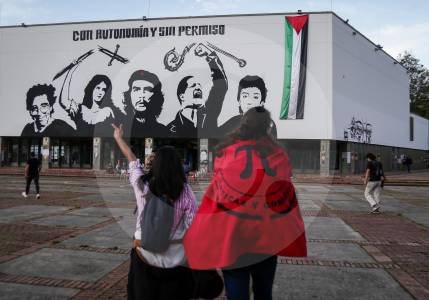Amnesty International Denounces Repression, Social Crisis, and Human Rights Abuses in Cuba during 2024
- Cuba
- mayo 29, 2025
- No Comment
- 60
The organization’s annual report documents severe restrictions on freedom of expression, arbitrary detentions, deterioration of basic services, and the criminalization of activists, journalists, and protesters.
MIAMI, United States — Amnesty International’s (AI) report on the human rights situation in Cuba during 2024 reveals an alarming picture of humanitarian crisis, state repression, and systematic discrimination against vulnerable sectors of the population. According to the organization, the year was marked by reduced social services, worsening living conditions, and an increase in repressive measures against critical voices.
“The population struggled to access food and medicine,” the report warns, adding that “new restrictions on freedom of expression” were imposed, and “arbitrary detention and the criminalization of activists, human rights defenders, journalists, and protesters” continued.
Amnesty International stated that legal reforms adopted by the regime curtailed the growth of new private forms of the economy, which restricted access to basic goods and services and reduced economic opportunities for broad segments of society. “Economic policy was altered and social services were reduced, which affected vulnerable populations, especially those over the age of 65,” the text highlights.
Among the most tangible effects, the report denounces the reduction of subsidized bread rations and the collapse of pharmacies due to medicine shortages. “In September, the government reduced the subsidized bread ration due to ingredient shortages,” while “authorities acknowledged a significant shortage of supplies in pharmacies,” according to official sources cited by Amnesty.
The energy collapse was another key factor in the social deterioration. “Many parts of the country went up to 96 hours without electricity, severely affecting millions of people,” the report states, also noting how this situation directly impacted education and healthcare services.
In terms of civil liberties, the enactment of the Social Communication Law in October 2024 tightened the clampdown on dissent. According to Amnesty, authorities “continued to label activists and journalists as ‘criminals, mercenaries, and foreign agents,’” and at least 20 people reported the confiscation of mobile phones and laptops, as well as threats of criminal prosecution.
Repression went beyond the symbolic: during the year, at least 109 people were detained for participating in protests, and several activists and journalists were subjected to house arrest, surveillance, and harassment. Among the most notable cases, the report mentions academic Alina Bárbara López, violently detained in June, and Berta Soler, leader of the Ladies in White, who was arbitrarily detained on multiple occasions.
The situation in Cuban prisons was also a cause for concern. The organization denounced “inhumane detention conditions,” including mistreatment, lack of medical care, and prolonged solitary confinement. “Prisoner of conscience and opposition leader José Daniel Ferrer spent months in solitary confinement (…) in December, he declared a hunger strike,” the report states. Only after this protest was he allowed visitors and moved to a regular cell.
Amnesty also highlighted high levels of structural discrimination. “Women, LGBTI individuals, and people of African descent (…) continued to face discrimination for political and religious reasons.” Although the Cuban government approved a national system to monitor gender-based violence, femicide is still not classified as a specific crime.
Regarding forced exile, Amnesty documented the release of political prisoners in exchange for their departure from the island. One such case was that of journalist Yuri Valle Roca, convicted of “enemy propaganda,” who was released in June on the condition that he leave the country.
Finally, the report denounces that Cuban authorities continue to use internet shutdowns, arbitrary fines, and forced exile as tools to silence dissent. “Ongoing repression of activists persisted (…) including travel bans and, conversely, forced exile,” the document concludes.
Recibe la información de CubaNet en tu celular a través de WhatsApp. Envíanos un mensaje con la palabra “CUBA” al teléfono +1 (786) 316-2072, también puedes suscribirte a nuestro boletín electrónico dando click aquí.





